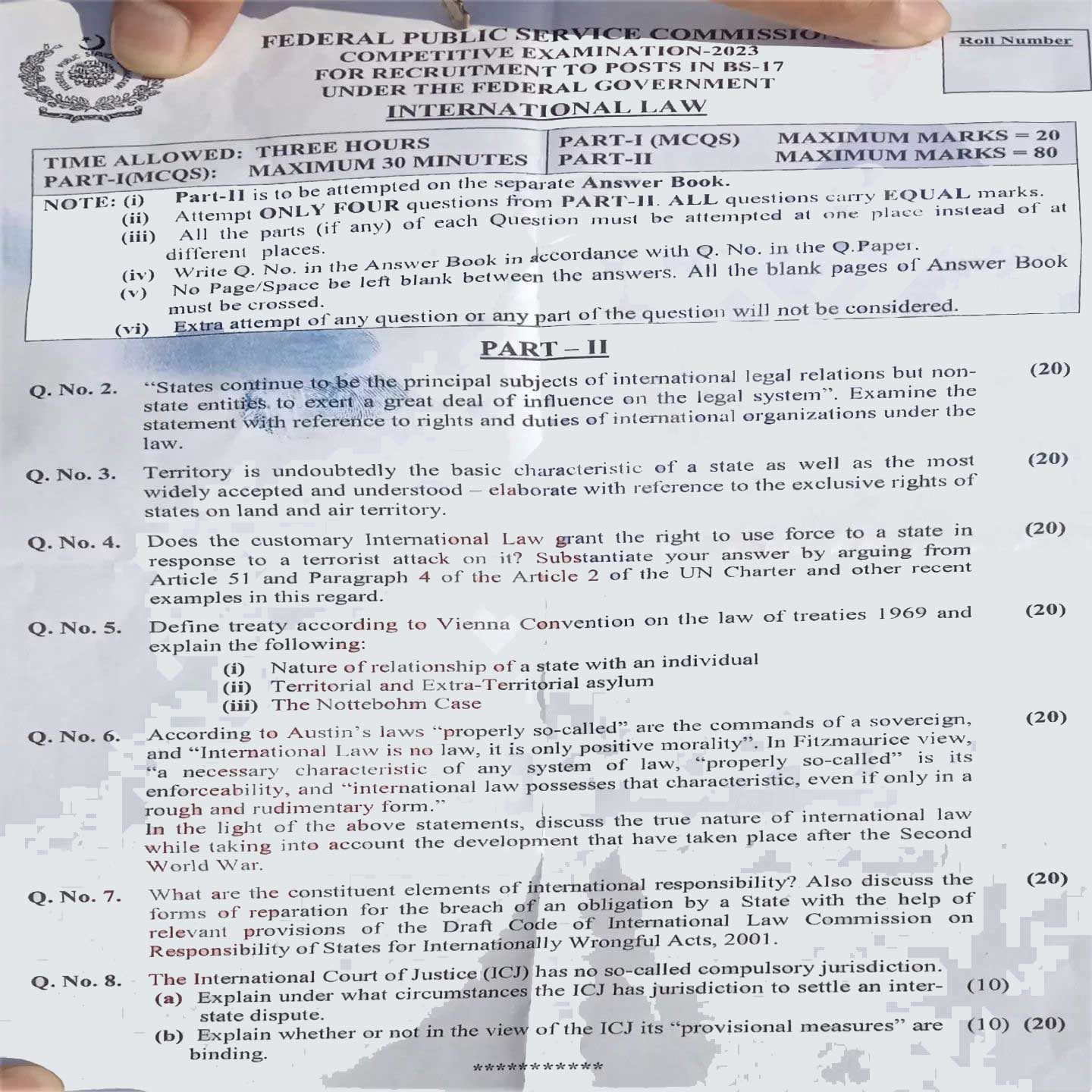Here you will find the CSS International Law Paper 2023. You can view or download this CSS International Law Past Paper 2023.
CSS International Law Paper 2023
The following questions are given in the International Law Paper 2023:
Q2. “States continue to be the principal subjects of international legal relations but non-state entities to exert a deal of influence on the legal system”. Examine the statement with reference to the rights and duties of international organizations under the law.
Q3. The territory is undoubtedly the basic characteristic of a state as well as the most widely accepted and understood — elaborate with reference to the exclusive rights of states on land and air territory.
Q4. Does the customary International Law grant the right to use force to a state in response to a terrorist attack on it? Substantiate your answer by arguing from Article 51 and Paragraph 4 of Article 2 of the UN Charter and other recent examples in this regard.
Q5. Define the treaty according to the Vienna Convention on the law of treaties 1969 and explain the following:
- Nature of the relationship of a state with an individual
- Territorial and Extra-Territorial asylum
- The Nottebohrn Case
Q6. According to Austin’s laws “properly so-called” are the commands of a sovereign, and “International Law is no law, it is only positive morality”. In Fitzmaurice’s view, “a necessary characteristic of any system of law, “properly so-called” is its enforceability, and “international law possesses that characteristic, even if only in a rough and rudimentary form.” In light of the above statements, discuss the true nature of international law while taking into account the development that has taken place after the Second World War.
Q7. What are the constituent elements of international responsibility? Also discuss the forms of reparation for the breach of an obligation by a State with the help of relevant provisions of the Draft Code of International Law Commission on Responsibility of States for Internationally Wrongful Acts, 2001.
Q8. The International Court of Justice (ICJ) has no so-called compulsory jurisdiction
- Explain under what circumstances the ICJ has jurisdiction to settle an inter-state dispute.
- Explain whether or not in the view of the ICJ its “provisional measures” are binding.

Also Read:
- All Other CSS 2023 Papers
- View CSS Subject-wise Past Papers
- CSS Notes and Study Material – All subjects
